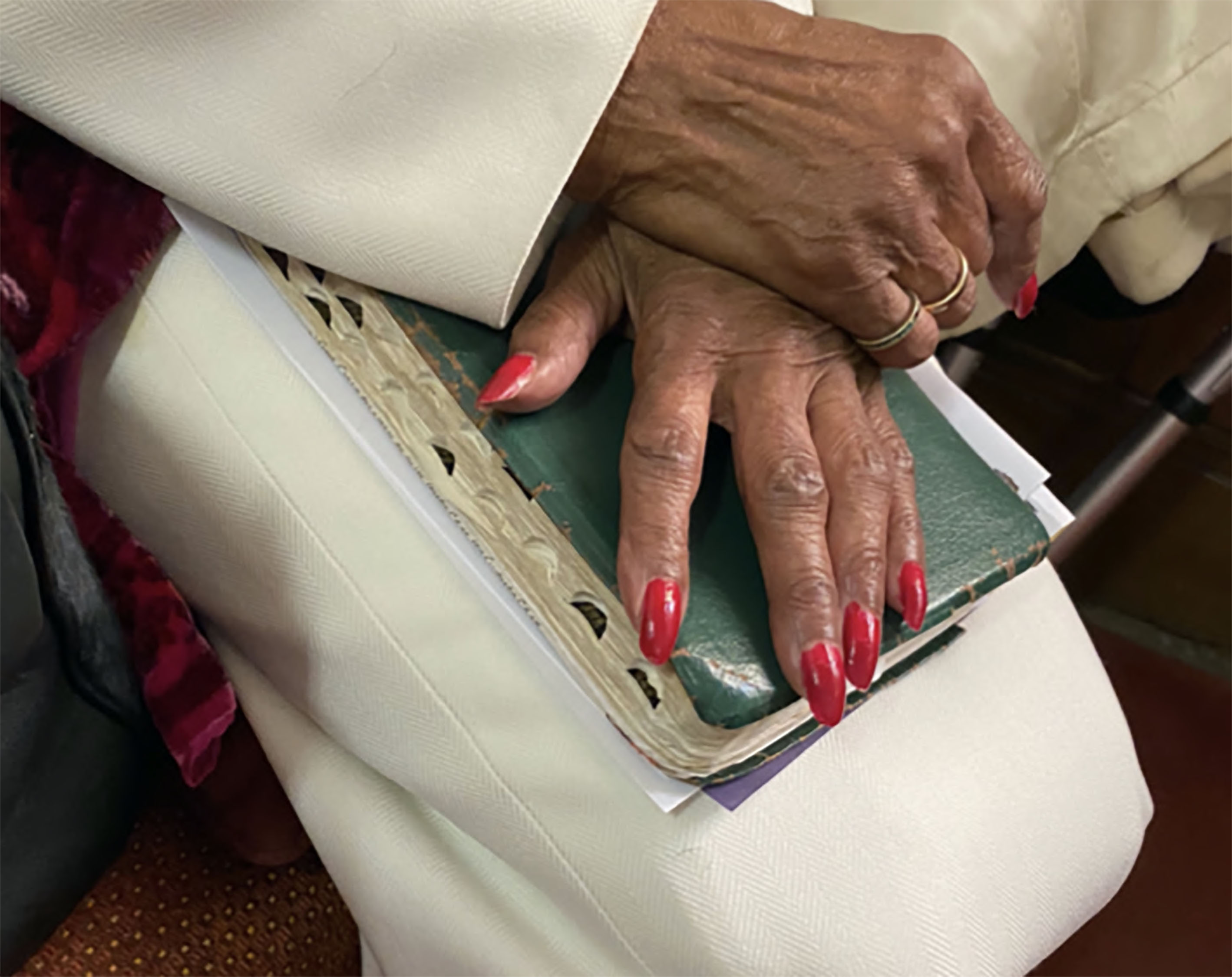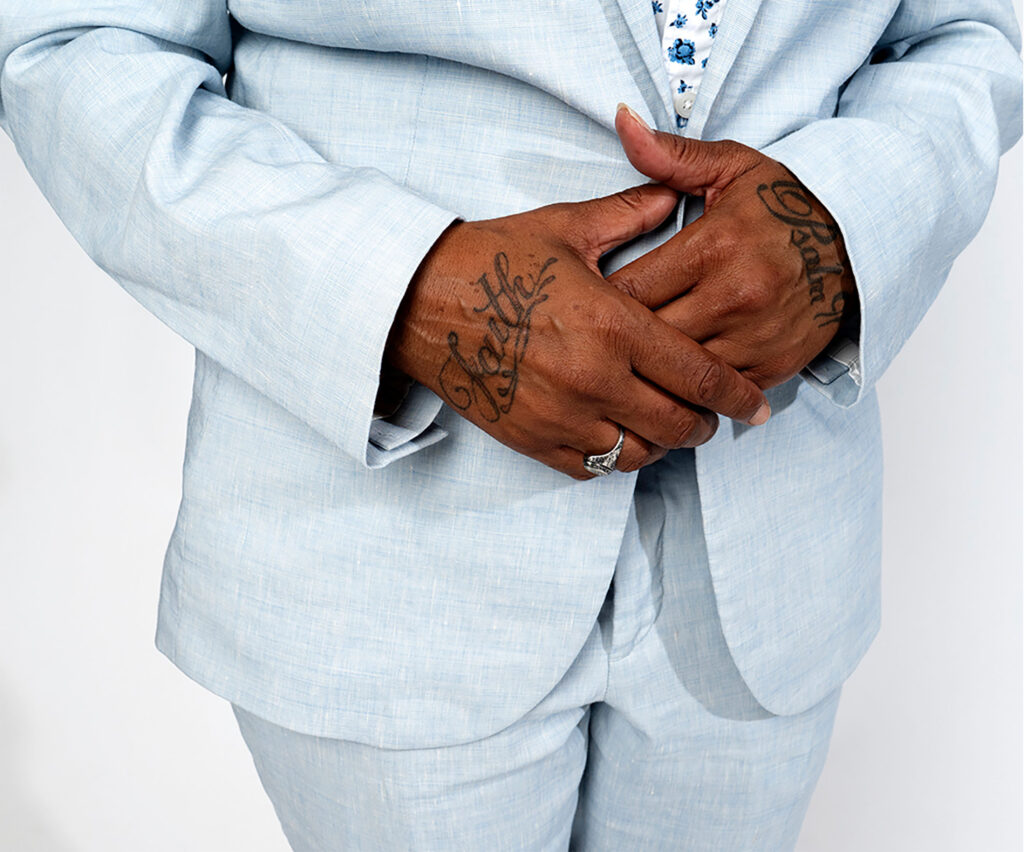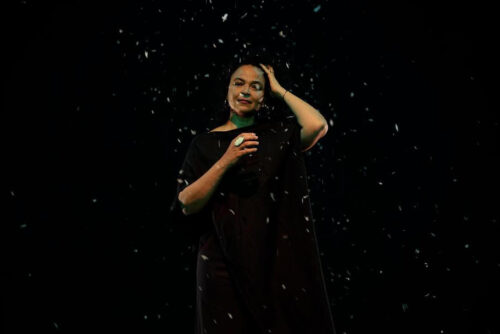

These photographs are an extension of an ongoing photography project, in search of beauty. I have written about the Black female body in photography for over thirty years and thought often about spirituality and transformation. I find it particularly evident in the hands of Black women living in Black communities for an extended period of time. For this project, I decided to photograph the hands of my ninety-nine-year-old mother, Ruth, and connect them to the tattooed hands of a prison reform activist, Faith, who lived in Philadelphia. These two women find power in the word of God. They thrive and survive from this foundation.
I love looking at hands and observing how women use them to express their thoughts, from gesturing as they sing to frying chicken, from baking bread to curling hair. I recall, as a child, watching my grandmother in church, how she believed in self-care and how she cared for others with her hands. Her touch healed others. I often associate her with Alice Walker, whose 1974 essay “In Search of Our Mothers’ Gardens” challenges us to imagine the experiences of our creative female ancestors defining our own identity as Black women artists throughout history.
What did it mean for a black woman to be an artist in our grandmothers’ time? In our great-grandmothers’ days?... How was the creativity of the black woman kept alive, year after year and century after century, when, for most of the years black people have been in America it was a punishable crime for a black person to read or write? And the freedom to paint, to sculpt, to expand the mind with action did not exist.1
Our strength is in our hands, young and old, and the extension of the hand in its use to write and to silence. The beauty of red nails on a well-read, green leather Bible shows a lived experience of hope, joy, and resilience.
I met Faith while researching for the Mural Arts/Philadelphia African American Museum Rendering Justice exhibition in 2019. Faith is an advocate for prison reform. She helps women re-enter society after incarceration. “I am passionate about helping these women that’s coming home, digging out resources because nobody was there to do it for me!” she said to me. The calligraphy of Faith’s tattoo on her hands spells out her name and Psalm 91, God’s promise of protection. Both of these women, Ruth and Faith, hold on to the promise of a higher power, a commitment made more extraordinary in the face of 2020, when the photograph was taken, a difficult year of Black death marked by the mortality of Coronavirus and abusive policing.
I began my artistic career in the 1970s in North Philadelphia. I have often referenced my now 100-year-old mother in my work. She owned and operated a beauty shop in North Philadelphia. Her interest in quilt-making, storytelling, mentoring, and styling was and still is central to my practice. Poet and author Michelle Cliff inspires me with her candor about the responsibility of Black women creatives to reevaluate the image of the Black woman as object. She writes,
Black women have been doubly objectified as black, as women; under white supremacy, under patriarchy. It has been the task of black women artists to transform this objectification: to become the subject commenting on the meaning of the object or to become the subject rejecting the object and revealing the real experience of being.2
By presenting these two photographs, I am extending our hands to redefine Black women’s stories from object to subject as they have held many stories through the making and changing of our world.
Works Cited
Cliff, Michelle. “Object into Subject: Some Thoughts on the Work of Black Women Artists.” Heresies 15, no. 4.3 (1982): 35.
Walker, Alice. “In Search of Our Mothers’ Gardens,” in In Search of Our Mothers’ Gardens: Womanist Prose, 402–3. San Diego, CA: Harcourt Brace Jovanovich, 1983.
Willis, Deborah. Ruth Willis Holman (1922-2022), Mom’s Bible and red nails. 2022.
Willis, Deborah. Faith in name and ‘faith’ in ink. 2022. North Philadelphia.



